Please Don't Repo Fido - Lawmakers Ban Pet Leasing
Bill Ketzer, ASPCA
 Puppies sold in pet stores, most of which are sourced from puppy mills, are often accompanied by soaring sticker prices. To make the puppies appear more affordable, private lending companies are offering leasing plans. Miss a payment and they can repossess your pup. Bill Ketzer, from ASPCA Government Relations, is asking lawmakers to end this predatory practice.
Puppies sold in pet stores, most of which are sourced from puppy mills, are often accompanied by soaring sticker prices. To make the puppies appear more affordable, private lending companies are offering leasing plans. Miss a payment and they can repossess your pup. Bill Ketzer, from ASPCA Government Relations, is asking lawmakers to end this predatory practice.
You know how it is, you walk into a pet store and see that cute little puppy in the window and you want it. However, it's so expensive and you know can't afford it. Then the salesman comes over to you and says that he can make this dog affordable for you. He will lease this pet to you for low monthly payments and doesn't really discuss the balloon payoff at the end.
Unfortunately, animals are treated as property in the eyes of the law, so if you lease a pet and you miss a payment, they could repossess that pet. For most of us that pet a family member, but for the leasing agency, it's just collateral.
Bill Ketzer is the Senior Director of ASPCA Government Relations for the Northeast Region and he tells us that while is a very disturbing trend, currently there's great legislation being made across the country to change it. He explains he first became aware of it a couple of years ago when he initially worked with the State Department of Agriculture and markets to try to figure out through the random animal inspectors who regulate many of these entities, just how prevalent it was. At that time, it didn't seem like it was going to be something that was going to catch on. But boy, it certainly has. He tells us that in working with that agency, he's starting to figure out just how prevalent the practice is. In fact, there's one local chain that states on the record that over 30-percent of their annual sales are from leasing agreements.
Leasing pets capitalizes on the emotional connection people feel towards a puppy to kind of lure them in and say I can make this affordable for you for only $50. You can walk out this door today with only $50 down and low monthly payments of $50 a month. Unfortunately a lot of people don't even know they're entering a lease agreement. They think it's traditional financing. They think when they walk out of that store that they own that animal free and clear.
Besides taking advantage of emotional consumers that see that cute puppy in the window, having a third party retaining ownership has to raise some ethical questions about who's really responsible and even permitted to make important medical decisions on behalf of the animal.
Bill tells us he has reviewed some of these contracts and there's no one set way to structure them. However, at the end of the day, if you don't own the animal, then there is a definite ethical concern as to whether you are actually liable to provide medical care. But of course you're going to provide the medical care because this is now your family member. You're not going to walk away from an animal that needs medical care. However, at the end of the day if you miss a payment, they could come and get that animal whenever they want. And the back end question is, "Where's that animal going to go?"
What if a dog needs life saving surgery that's too expensive for the owner to afford and they can't pay for it, what happens to the dog? Who's responsible to save its life? What if it gets repossessed, what happens to it then?
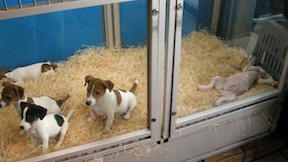 This all depends on the small print in the contract. These companies don't want to repossess an animal. What they would rather do is have either the lender itself or a vendor that they hire for collections work with the purchaser who has the lease and restructure the agreement. They may lower your monthly payment, but then extend the terms. Basically they're going to try to get you into another contract to make it amenable for both sides in theory. Unfortunately any new agreement is still not amenable to the pet owner. Remember, they're in the business of making money, not in the business of taking care of animals.
This all depends on the small print in the contract. These companies don't want to repossess an animal. What they would rather do is have either the lender itself or a vendor that they hire for collections work with the purchaser who has the lease and restructure the agreement. They may lower your monthly payment, but then extend the terms. Basically they're going to try to get you into another contract to make it amenable for both sides in theory. Unfortunately any new agreement is still not amenable to the pet owner. Remember, they're in the business of making money, not in the business of taking care of animals.
One such company that does this type of leasing is called WAGS. So far they've serviced 66,000 pet leases and state that they have never repossessed a pet ever, which makes you wonder what kind of power these loans really have. These companies don't want to repossess an animal, but what they will try to do is work through a collection agency to encourage the purchaser to restructure the deal so that it's more affordable for them in the short term of monthly payments. But at the end of the day, the purchaser is still going to be paying two to three times the amount that they originally signed up for at retail. These animals go for at retail for anywhere from $1,000 to $3,500, maybe even more, depending upon the breed. And if you're paying three times that amount at the end of term, plus a balloon payment at the end to actually own the animal, that's a lot of money.
This is a predatory practice according to Bill. And it's not just about leasing, it's also about the nature of the industry in general. This is a moneymaking industry. This owned "property" is a living and sentient entity that is not a chair. It's not a television. It shouldn't have to be repossessed. It's also not something that you just forget about it after like a couple of years and put it to the curb. This is a long time commitment for people who care deeply about their animals.
So the extent is that there wouldn't be this pressure to sell these animals for all this money if you didn't have this wholesale high volume-breeding environment that is kind of coughing all of these animals into these retail systems.
The system is broken. It's not readily regulated in a meaningful way by the federal government. As a matter of fact, the federal government is making it very difficult for the public to get information from them regarding the source of these animals.
Obviously, it's best to adopt from shelters and rescue organizations and not purchase an animal retail. But if you did and wanted to find out the source of the animal or the history of the breeder that sent the animal to the pet store, it's very difficult to do. Knowledge is key and knowledge is power. Bill encourages anybody who has a voice to put information out there to the public and inform them about the nature of the industry at large and certainly about these unfortunate predatory practices that retailers are using to help this horrific industry.
On the flip side, many cities are now learning towards the sales of pets in stores to come from shelter or rescue organizations. This is essentially a retail environment that provides space for nonprofit shelters or rescue organizations for adoptions. However, Bill cautions that we don't want to ultimately turn shelters and rescues into retailers. There's a lot of nuance there Bill doesn't get into, but under the right circumstances, he thinks there would be a comfort level with that, but it has to be done very, very carefully.
Visit Website
Boy's Mission To Pet One Million Dogs
Gideon Kidd, I've Pet That Dog
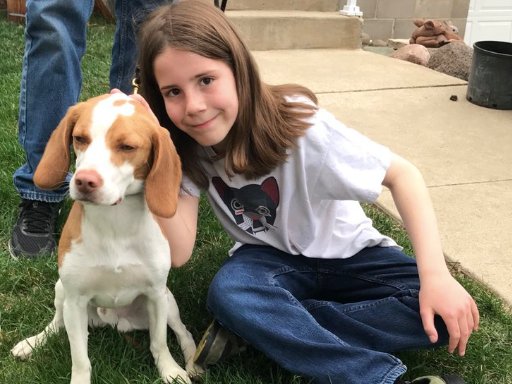
Gideon Kidd is 12-years-old and has a goal to pet a million dogs for his pet project. So far, the 12-year-old boy has pet more than 750 dogs. He's chronicled his journey on Twitter, garnering almost 385,000 followers. He'll tell us how it's going since we last spoke to him in June.
So how does Gideon meet all of these people and their dogs? He tells us he drives around in the car with his mother. When they see a dog, they park and he gets out. Gideon approaches and asks the people if he can pet their dog and put them on his website.
At first people think its kind of like weird and are like, "What is this kid doing?" But after he explains himself, they are willing to participate.
However, Gideon doesn't get to pet every dog he sees, as some owners have turned him down. He thinks this is because people might think that they are being stalked. This is because they have to circle around the block to go back to where a person was walking. So when they finally park and get out, the person starts looking really nervous and kind of scared. Gideon says he has received some weird excuses. One person said that Gideon couldn't pet his dog because he was going to the bathroom. However, it is getting easier, as Gideon is starting to be recognized by the people in his town.
Gideon says he has never been bitten, as there is a proper way to do it. He says the first thing you need to do is to ask the dog's caregiver's permission. If they say yes, you put your palm out and approach the dog slowly. He says you never just run up to a dog and pet it all over, just let the dog come to you or slowly go up to it.
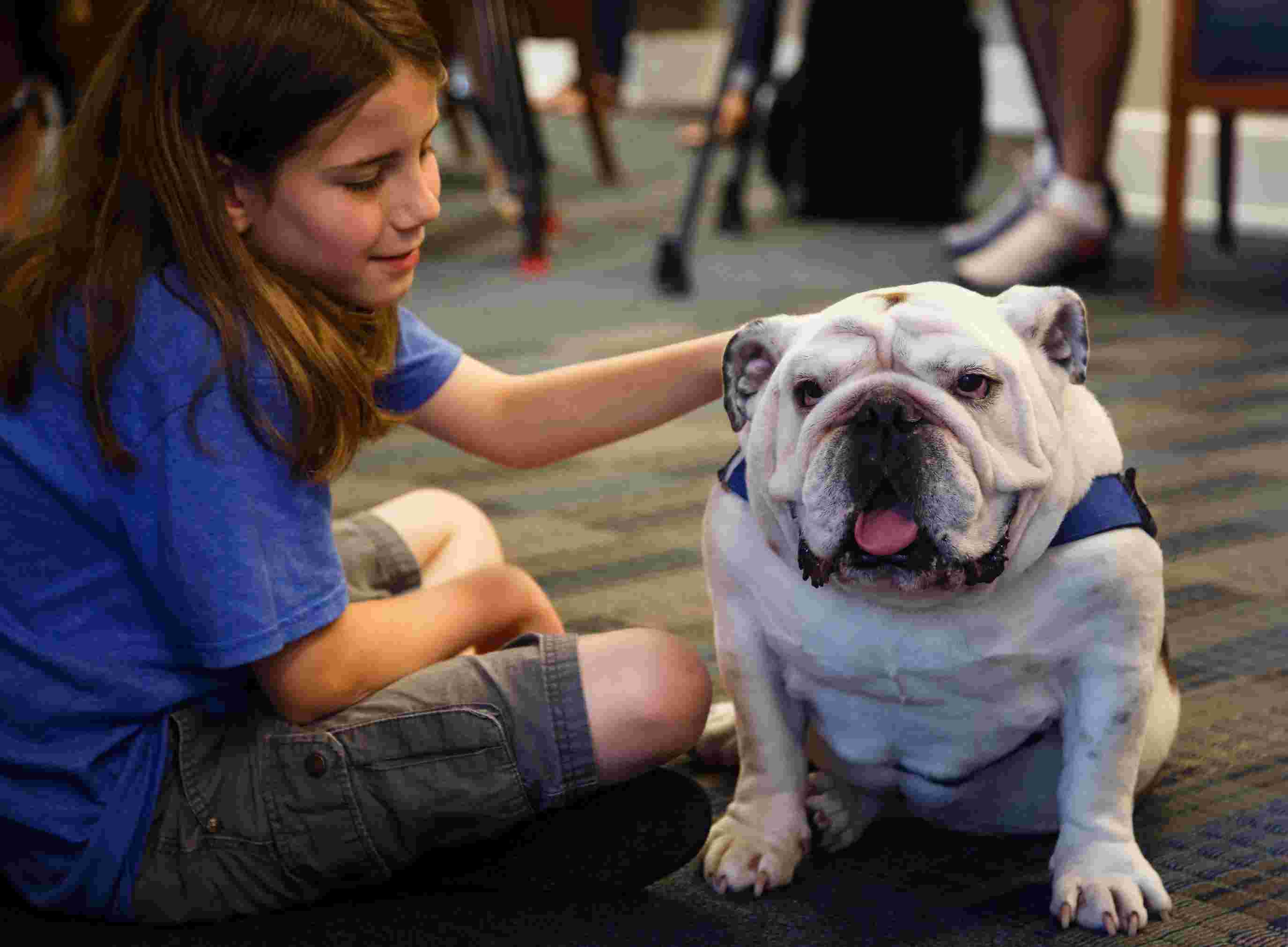 At home, Gideon has a dog-named Walter. Lucky for Walter that Gideon doesn't get tired of petting dogs all day and still has some pets left for him. Walter also doesn't seem to be jealous of all of the other dog-petting going on and doesn't seem to even smell the other dogs, according to Gideon. He also has two cats and at one time had a Venus fly trap. To care for them, Gideon explains that you put them out side and the bugs will come to them, as they need over four hours of sunlight. Gideon tells us his Venus fly trap passed away because they are really hard to take care of.
At home, Gideon has a dog-named Walter. Lucky for Walter that Gideon doesn't get tired of petting dogs all day and still has some pets left for him. Walter also doesn't seem to be jealous of all of the other dog-petting going on and doesn't seem to even smell the other dogs, according to Gideon. He also has two cats and at one time had a Venus fly trap. To care for them, Gideon explains that you put them out side and the bugs will come to them, as they need over four hours of sunlight. Gideon tells us his Venus fly trap passed away because they are really hard to take care of.
If you happen to be passing through Cedar Falls, Iowa with your dog, you should get in touch with Gideon and get your dog petted.
Rachel, Gideon's mother, has created a twitter feed as well as a website for Gideon. Every time he pets a dog, she takes a picture and posts it on his website. He currently has almost 385,000 followers on Twitter.
Visit Website
Coyotes Stalking our Neighborhoods - Dr. Debbie
 I just saw a scraggly coyote in front of my house this morning - the second coyote sighting in my neighborhood this week. I feared what could have happened if my 15 pound terrier was outdoors alone. Wildlife is beautiful, but when my little terrier, Boss, is in harm's way - my doggie momma protective instincts kick in. While not a threat to be exaggerated, the coyote nonetheless poses a risk to our pet's safety.
I just saw a scraggly coyote in front of my house this morning - the second coyote sighting in my neighborhood this week. I feared what could have happened if my 15 pound terrier was outdoors alone. Wildlife is beautiful, but when my little terrier, Boss, is in harm's way - my doggie momma protective instincts kick in. While not a threat to be exaggerated, the coyote nonetheless poses a risk to our pet's safety.
Coyotes are increasingly becoming a concern in urban areas - some are displaced by the urban sprawl that consumes their potential habitat. But other coyotes become urbanized savvy to living, feeding and thriving within city environments. Coyotes are born opportunists and dine on what they find available. They eat small animals like rabbits and rodents, but also consume ample vegetable matter with up to 40-percent of their diet consisting of seeds, grasses, fruits and flowers.
The most serious coyote concern for pets is injury and predation. As a veterinarian, I can recall many a client whose pet was brought in injured by unknown wildlife or whose cat just one day reportedly just vanished. While many might believe their cat was stolen, in reality these cats most likely fell victim to coyote predation. Likewise, small to medium sized dogs can be injured or lost to the same fate as their feline counterparts.
Steps to Keep Your Pet Safe
Whether you have pets or not, it's important not to feed coyotes. Intentional feeding of coyotes makes them dependent on humans and less fearful which increases the chance of an unwanted, dangerous interaction with people or pets. Just leaving unsecured garbage is invitation enough for these opportunists. Secure all garbage in closing containers and avoid leaving bagged garbage at the curb overnight. Pick up uneaten pet food as soon as your pet has finished eating.
Pet owners should take precautions to keep their household pets protected as well. Keep cats indoors and maintain all pets on leash control when outdoors. Ensure your dogs and cats are up to date on their rabies vaccines. Even indoor cats that do not venture outdoors should be current on this vaccine for both pet and human safety.
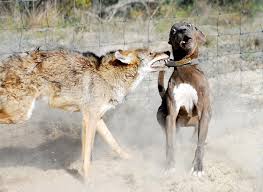 Besides rabies, keep your pets current on other vaccinations, deworming and preventatives as recommended by your veterinarian. Coyotes are known to harbor carry skin mites, canine distemper virus, canine parvovirus, adenovirus and heartworm disease. So even if your dog never leaves your yard, there is potential for infectious disease crossover between wildlife and your pet.
Besides rabies, keep your pets current on other vaccinations, deworming and preventatives as recommended by your veterinarian. Coyotes are known to harbor carry skin mites, canine distemper virus, canine parvovirus, adenovirus and heartworm disease. So even if your dog never leaves your yard, there is potential for infectious disease crossover between wildlife and your pet.
These wild canids are masters at adapting to their changing world, and it's unrealistic they are going away on their own. As humans we are the ones that need to change to make urban areas less appealing, removing easy feeding sites, and by raising awareness to the potential crossover between wildlife and pets.
Featured veterinarian known as "Dr. Debbie" on national pet radio program, Animal Radio. Ebook author of "Yorkshire Terriers: How to Be Your Dog's Best Friend"; "Pugs: How to Be Your Dog's Best Friend"; "Mini Schnauzers: How to Be Your Dog's Best Friend"; and "Shih Tzu: How to Be Your Dog's Best Friend." Dr. Debbie's books.
Visit Website
Animal Radio News - Lori Brooks
 More Tigers Kept As Pets Than Living In The Wild
More Tigers Kept As Pets Than Living In The Wild
There may be more captive tigers in the US than wild ones in the rest of the world. However, in states like Texas, no one really knows how many tigers are being kept as pets. As many as 7,000 tigers live in the US, either in zoos or as exotic pets, which is nearly double the estimated 3,900 tigers still living in the wild around the world. So, does that mean these pet tigers are a part of the endangered tigers roaming the wild? No. That's because the Endangered Species Act does not cover exotic pets, as it only applies to animals taken from the wild. Many pet tigers come from US breeders and because they are considered pets, it is actually up to the state to deal with it. This report came from the BBC which noted the majority of tigers in the US come from breeders to supply the cub petting industry that are used in petting zoos for parties and events.
Pets Owners Are Becoming Tech Savvy
It might soon be difficult to have a pet if you're not tech savvy, according to a new report from the Consumer Technology Association. They asked pet parents what tech devices they are most likely to buy within the next year. The most popular answers were interactive toys, automated feeders, grooming devices and pet GPS trackers. It's estimated these devices will increase 20-percent in sales this year. Safety and peace of mind are the biggest drivers of future pet tech purchases, as seen by the interest in automated feeders, vet and pet safety apps, pet GPS' and more. But, it's not all about dogs. Of those who own pet tech devices, 45-percent of cat owners use tech devices at least once a day, compared to 35-percent of those who have dogs. However, both cat and dog owners are willing to use tech to address their furry child's issues. Thirty-five percent of dog owners say training is the biggest issue pet tech should solve and for those who have cats, they say monitoring their pet's nutrition is their biggest priority.
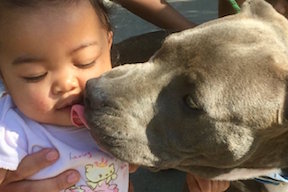 Pit Bull Puppy Saves Baby
Pit Bull Puppy Saves Baby
A pit bull puppy in Northern California is being called a hero. Sasha, the Pit Bull, and her baby human sister were born only a few days apart. Now, that bond is even stronger after Sasha alerted the family to a fire at the neighbor's house that was spreading to their home. The house was part of a duplex and the fire had started next door and was quickly spreading. The family was sleeping and Sasha was outside. She started barking and banging on the door. When the door opened, Sasha ran to the bedroom and got the baby off a bed by her diaper before the mother had even arrived in the room. Normally Sasha is kept inside, but her family is glad she was outside on this one occasion, as she was able to detect the fire quickly.
Millennials Chose Pets Over Children
A new study shows that the latest generation is no longer as interested in having children and the researchers are blaming it on their love of dogs. The study claims "millennials" are less likely to become parents of "human children" because they are instead focusing on their pets. Apparently 44-percent of millennials are unsure if they want to have children, but their rate of pet ownership continues to rise. Seventy-one percent of men and 62-percent of women between the ages of 18-34 own a dog, while 48-percent of men and 35-percent of women own a cat. These animals are acting as a substitute for children according to the study, which is suspected to be a side effect of the fact that this generation is half as likely to be married than the generations preceding it. "Pets are becoming a replacement for children," said psychology professor Jean Twenge. "They're less expensive. You can get one even if you're not ready to live with someone or get married and they provide companionship." Millennials are also getting their pets younger than Baby Boomers did. The average age for a millennial to get a pet is 21, where boomers waited until 29.
 Convicted Deer Poacher Ordered to Watch Bambi Every Month For a Year
Convicted Deer Poacher Ordered to Watch Bambi Every Month For a Year
A Missouri judge has ordered a convicted deer poacher to watch Bambi at least once a month during his time in jail. The man is actually one of four family members implicated in a three-year hunting operation that resulted in the deaths of hundreds of deer. The prosecutor said the family mainly stalked their prey at night, killing the deer and taking their heads and antlers, then abandoning the carcasses. The state's Department of Conservation called it a thrill and kill sport for the men. By the way, the one-year jail sentence was initially suspended in favor of a two-year probationary period. But the guy who now has to watch Bambi quickly violated the terms of his probation, leading the Judge to reinstate the original one-year sentence with the additional Bambi twist.
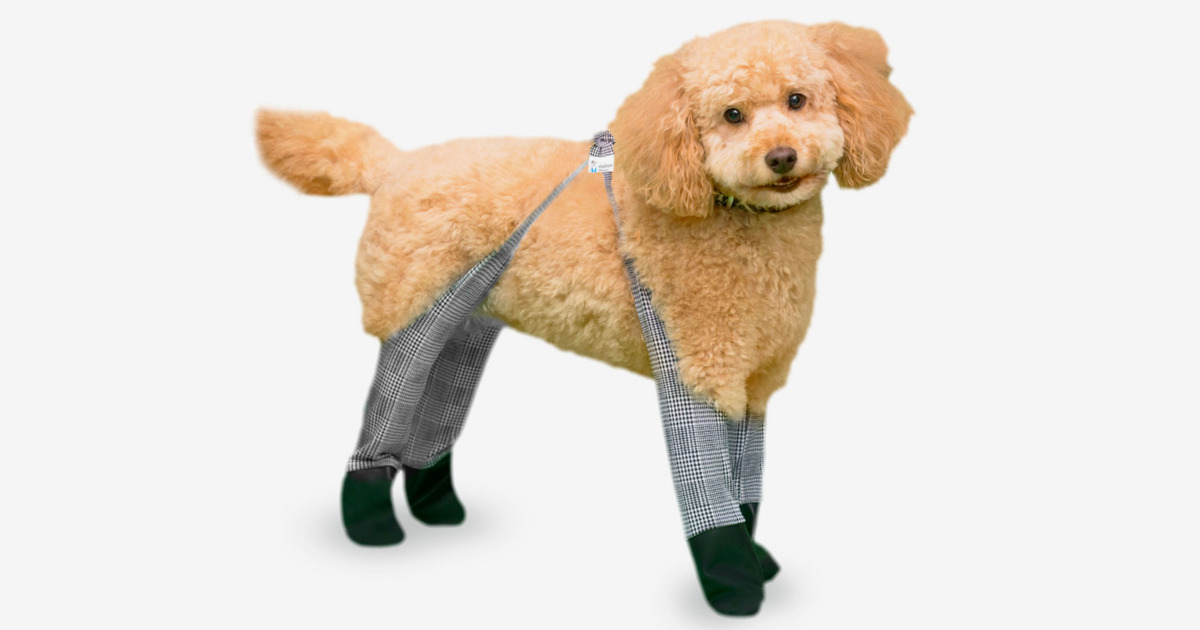 Leggings For Dogs
Leggings For Dogs
Women of all ages love wearing leggings, so why not try leggings for your dog? Apparently they can be a game changer when it comes to keeping dogs clean. One well-known brand of dog leggings is called Walkee Paws and they actually cover you dog's legs and feet! Then, they clip together across their back so they stay put. The part that covers the feet is a rubber-soled booty, which also keeps sensitive paws chemical free, clean and dry. The woman, who invented Walkee Paws, says the company is even considering making matching sets of human and dog leggings in the near future.
 Listen to the entire Podcast of this show (#1089)
Listen to the entire Podcast of this show (#1089)





